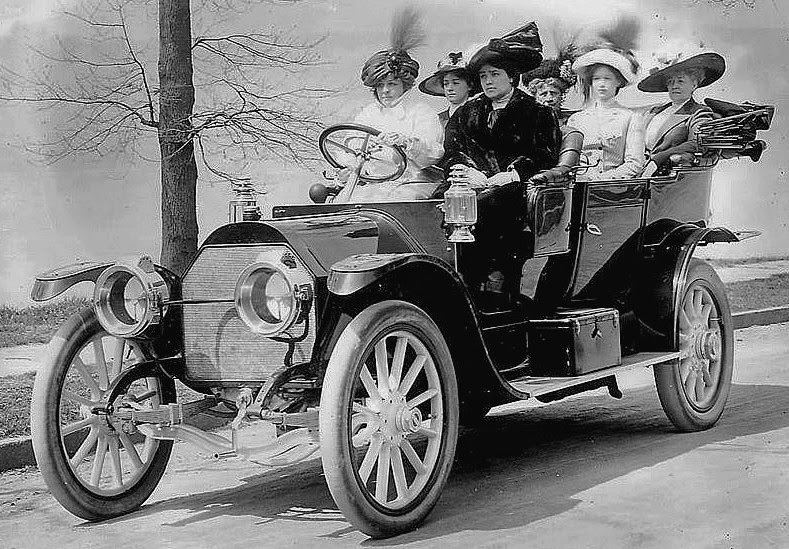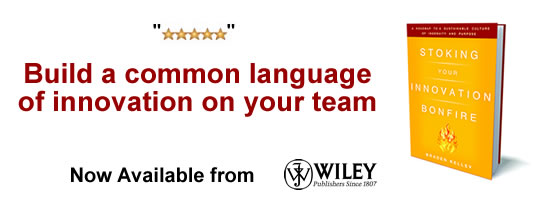Can America Win The New Century?

At the beginning of the twentieth century, the United States was an industrial and technological backwater. Still mostly an agrarian nation, bright young students would often go to Europe to pursue advanced degrees in the sciences, because American universities were considered second rate.
By the end of the century though, the United States had become the center of the technological universe. Earning more Nobel Prizes in the sciences than any other country, we built unparalleled dominance in industries ranging from information technology to bioscience. US universities are now considered the finest in the world.
Yet the new century poses unprecedented challenges. Globalization and other trends are creating a multi-polar world. A rising Asia, led by China, threatens to usurp American primacy while, at the same time entrepreneurship is at or near historic lows. If we are to win in this new century, we need to return to the values that made us dominant in the first place.
Have You Ever Dreamed A Dream?
In August 1929, just before the stock market crash, Louis Bamberger and his sister, Caroline Bamberger Fuld, sold their department store in Newark to R.H. Macy & Company for $25 million ($343 million in 2015 dollars). Grateful to the people of Newark for their support, they planned to endow a medical college in that city.
Yet when their representatives approached Abraham Flexner, the foremost authority on higher education at the time, he told them that there was little point in building a medical school just across the river from Manhattan, where there was no shortage of medical talent. When asked if he had any suggestions, Flexner replied, “Have you ever dreamed a dream?
Flexner’s dream was to create an academic institution like no other. It was to be a place where great minds could roam free, unencumbered from teaching duties or publishing requirements. A master salesman, Flexner convinced the Bambergers not only to support his vision, but that Princeton, located 40 miles away, was somehow in the Newark area.
That’s how the Institute for Advanced Study was born. Flexner scored an early coup by luring Albert Einstein, who was feeling increasingly uncomfortable in his native Germany, where they had taken to calling his work “Jewish physics,†to be its first permanent scholar. Others, such as the mathematical wunderkind, John von Neumann, the physicist Hermann Weyl and the logician Kurt Gödel soon followed.
Science, The Endless Frontier
As the political situation in Europe continued to become more precarious during the 1930s, its greatest minds flooded America’s shores. From Niels Bohr to Wolfgang Pauli it quickly became the greatest migration of intellectual talent the world had ever seen. No longer a backwater, America had, in the space of a decade, become home to the planet’s finest scientific minds.
By 1941, it had become clear that the war raging in Europe would soon envelop the US. With this in mind, Vannevar Bush went to President Roosevelt with a visionary idea — to mobilize the nation’s newfound scientific prowess for the war effort. Roosevelt agreed and signed an executive order that would create the Office of Scientific Research and Development (OSRD).
With little time to go around the country hiring scientists and building labs, Bush conceived an innovative model for the OSRD. It was to offer grants to private institutions and research universities, which would cut down on bureaucracy and allow projects to start right away. The OSRD proved to be enormous successful, with inventions that included the atomic bomb, proximity fuze and radar, it greatly influenced the outcome of the war.
As the war was winding down, Roosevelt asked Bush to write a report about how America could continue the success of the OSRD in peacetime. That report, titled Science, The Endless Frontier, would set the stage for America’s technological dominance during the second half of the century.
A Technological Superpower
Bush’s report did far more than document the success of a government program. It set forth a new vision in which scientific advancement would be publicly funded, but made available for private purposes in order to create newfound prosperity. He wrote:
Basic research leads to new knowledge. It provides scientific capital. It creates the fund from which the practical applications of knowledge must be drawn. New products and new processes do not appear full-grown. They are founded on new principles and new conceptions, which in turn are painstakingly developed by research in the purest realms of science.
The influence of Science, The Endless Frontier cannot be overstated. It led to the creation of new government agencies, such as the National Science Foundation (NSF), the National Institutes of Health (NIH) and the Defense Advanced Research Projects Agency (DARPA) and created a scientific infrastructure like no other the world had ever seen.
Today, it is hard to go through a single day without being touched by science created by Bush’s vision. The Internet and GPS satellites were originally developed at DARPA, most blockbuster drugs get their start with research funded by the NIH and Google itself arose out of an NSF grant. Much as Bush envisioned, new knowledge led to new prosperity.
One overlooked aspect of the system Bush created was that scientific funding would be free from political influence. Decisions about grants would be made by the scientists themselves, rather than be beholden to which congressional districts had the most powerful representatives or which business groups held the most sway in Washington.
Regaining The Spirit Of Exploration
What made Bush’s vision so unique — and so powerful — is that it recognized new discoveries, as an end in themselves, advance society as a whole. By expanding knowledge we create new possibilities that are impossible to see beforehand. Einstein, for example, never thought he would see practical applications arise out of his work during his lifetime.
Moreover, this spirit of discovery captured the imagination of the American people. When John F. Kennedy announced that we would go to the moon, he portrayed it as a national mission that would expand our horizons, rather than a short term investment with an immediate payoff. As he said in his famous speech:
We choose to go to the moon in this decade and do the other things, not because they are easy, but because they are hard, because that goal will serve to organize and measure the best of our energies and skills, because that challenge is one that we are willing to accept, one we are unwilling to postpone, and one which we intend to win, and the others, too.
Yet that spirit is notably absent in today’s society. Government funding for science has been declining for decades. Scientists are routinely called before Congressional committees where they are berated and accused of falsifying data that does not conform to political expediency. Lamar Smith, the Chairman of the House Science Committee, even went so far as to say that the only true arbiter of truth is not empirical fact, but the President.
And so, with echoes of “Jewish physics†pervading the halls of government, the nation that once welcomed great minds to its shores has become one in which scientists are castigated for presenting their findings. Is it any wonder the French President Macron welcomes them to return to Europe? Or why great discoveries like the Higgs boson now happen on that side of the Atlantic instead of here?
Make no mistake, innovation needs exploration and science is at its center. It was the spirit of discovery that made America the exceptional nation, just as its absence will make our decline.
Wait! Before you go…
Choose how you want the latest innovation content delivered to you:
- Daily — RSS Feed — Email — Twitter — Facebook — Linkedin Today
- Weekly — Email Newsletter — Free Magazine — Linkedin Group
 Greg Satell is a popular speaker and consultant. His first book, Mapping Innovation: A Playbook for Navigating a Disruptive Age, was selected as one of the best business books in 2017. Follow his blog at Digital Tonto or on Twitter @Digital Tonto.
Greg Satell is a popular speaker and consultant. His first book, Mapping Innovation: A Playbook for Navigating a Disruptive Age, was selected as one of the best business books in 2017. Follow his blog at Digital Tonto or on Twitter @Digital Tonto.
NEVER MISS ANOTHER NEWSLETTER!
LATEST BLOGS
How Brexit Has Affected UK E-commerce Businesses
Photo by Zyro on Unsplash The popularity of online shopping was already growing at an impressive rate – and…
Read MoreOvercoming range anxiety: three tips for EV owners
Photo by Jenny Ueberberg on Unsplash In the last few years, electric vehicles (EVs) have become more and more…
Read More


